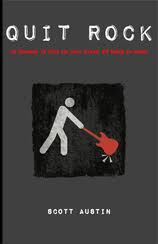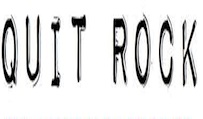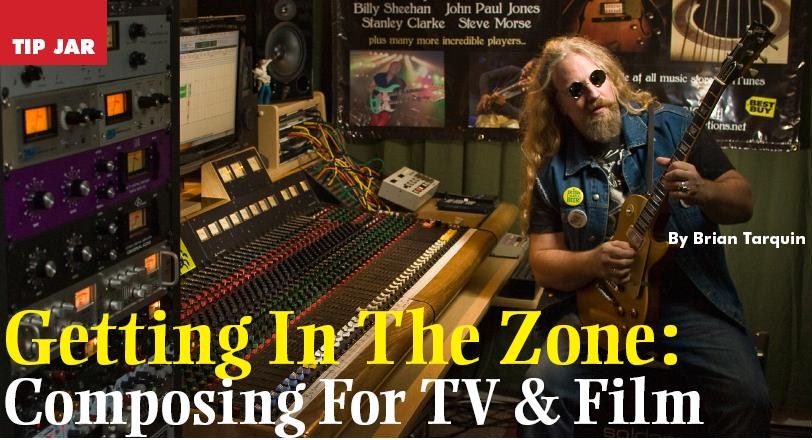Below is an excerpt from Quit Rock: 10 Reasons To Give Up Your Dream Of Being In Music © 2011 by Scott Austin and Thirst Parlor Ink. It is available exclusively at quitrock.com.
By Scott Austin

It’s been nearly five years since my last Tip Jar article, which I wrote back when I was an A&R executive for Maverick/Warner Bros. Records. My role as a creative liaison for one of the world’s biggest record companies gave me particular insight into the music business that I felt compelled to share with the throngs of talented young artists seeking to take their career to the next level.
A lot has changed since then. In fact, everything has changed. Now as an entrepreneur in the new model industry, I’ve found that segueing out of the confines of the traditional business has been both an arduous and enlightening experience. The New Game environment has meant that just like all of the emerging acts upon which my career depends for survival, I have been “encouraged” to look at the business in an entirely different way.
Like everyone who pursues a career in music, I had a dream of what the business was and could be. It wasn’t until I was able to look back on over a decade-plus of experience, however, that the ensuing successes, disappointments, and even failures along my journey pointed to the simple truth: Succeeding in music means ditching the dream, and subscribing to reality.
Rather than opine further, I thought I’d pass along an exclusive excerpt from my new book Quit Rock: 10 Reasons To Give Up Your Dream Of Being In Music to the readers of Music Connection. This excerpt, designated in the book as Reason #2, is just one of the reasons why success in music isn’t about chasing a dream, but facing the reality of the 2.0 business.
No Overnight Success
Let’s continue our cautionary tale with what might just be, at its core, the single greatest reason why most people will never succeed in music: the belief in overnight success.
This is the second of many reasons that might make some of you want to put my book down and dismiss my musings as negative and pessimistic.
That is exactly the point.
Today’s environment is the most difficult in the history of the business, so you can forget the fairytales where the artist discovery process is glamorized; rags-to-riches stories are a fantasy. If you want to truly create opportunity, you must always keep your heart and your mind anchored firmly in reality.
Being an artist in today’s industry requires more than luck and high hopes. It’s also more than just a job; it’s a standalone business. You must be a pioneer and a maverick if you are going to emerge a champion. The only one that can help you achieve your goals is you; waiting for figurative (or literal) rescue is not only detrimental, it’s futile.
You must become an entrepreneur. True entrepreneurs are risk takers who toss a typical existence out the window in exchange for a chance to make an impact on their own terms. Fortunately, there is no better place to have entrepreneurial spirit than in the current state of the music business.
The fleeting thought of overnight success is counterintuitive to the entrepreneurial spirit altogether, as it forces you to rely primarily on odds; and the odds of success in music have always been slim. Even in its heyday the business was more of a dictatorship than a democracy, with only a select few artists from a select few labels getting the kind of top-down marketing push that is necessary to create a “breakout star.”
Now It’s Worse
The universal ability to make and self-distribute quality recordings, although positive for artistic creation, is wreaking havoc on the economy of the industry. Thanks to new technologies, consumers are now able to hear music from thousands of new acts each year, though their incentive to invest in any one of them has been severely dampened by these very same advancements.
"Ditch the dream, subscribe to reality."
With so much more content available, it would seem that the circumstances should favor the independent artist, with dozens of promotional tools at his disposal. In actuality, giving the consumer more options to choose from in an age where individual attention spans are continually shrinking, means that every impression that you make is not only relevant, it is integral to the fabric of your career.
It’s the sheer volume of available new music that has made conversion of interested listeners into actual revenue for the artist and songwriter extremely difficult. Compounding the issue is the diminished value of recorded music in the eye of the fan. The view by many that music (and content in general for that matter) should be free has ushered in the need for fan-building skills that can create and develop ancillary sources of revenue.
The very premise of overnight success invites a flawed approach on two levels: First, as mentioned above, it requires you to rely almost entirely on chance. Second, it gives the false impression that the steps necessary to attract the attention you seek can be skipped or avoided.
Being in the right headspace means not just talking about all of the things you want to accomplish, but actually going after and achieving them now. Whether the goal is to write, record, tour or all of the above, everything is in your hands. Only you can take the first steps, and only you are responsible for making progress.
Contrary to what wishful thinking might suggest, there are always multiple factors that contribute to success, and in music it is never overnight. It is the combination of years of hard work and bits of luck and timing that creates career anomalies, making them less mysterious than they are practical results of a well-executed plan.
Remember, there is no finish line to cross with a career in music; the primary goal is quite simply to always be moving forward. Maintaining your relevance in the marketplace is the difference between triumph and defeat, and your ability to recognize that the blueprint for success is never written in a day, month or year will make all of the difference in how your story unfolds.














